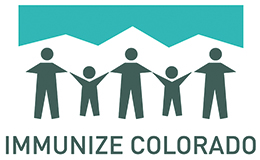
by Luke Schmaltz | Feb 19, 2021 | General Featured
“It’s not vaccines that save lives, it’s vaccinations.”
— Stephanie Wasserman, Executive Director, Immunize Colorado
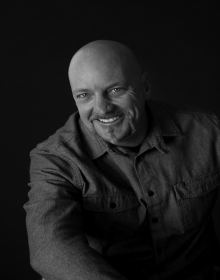 by Luke Schmaltz
by Luke Schmaltz
The strategy for combating the spread of Covid-19 and thus, reducing the subsequent fallout of loss and tragedy is fairly simple: inoculate the population. While this equation reads well on paper, implementing it across the Mile High region has a distinct set of challenges.
From a practical standpoint, it would seem that the biggest obstructions to vaccine distribution would be the tiered system of rollout phases (eligibility based on vulnerability) and the availability of enough doses for each demographic. While this is certainly the case, vaccine task force officials — including government appointed teams and private sector organizations — are facing formidable yet invisible hurdles anchored in misinformation and inter-generational mistrust of the medical system at large.
A Clearly Laid-Out Plan

The Colorado Department of Public Health and Environment has a systematic vaccination rollout plan.
The Office of Colorado Governor Jared Polis, in conjunction with the Colorado Department of Public Health and Environment (CDPHE), have established a series of phases to be implemented in a systematic, step-by-step fashion.
Phase One begins with high-risk individuals and healthcare workers (1A), people age 70+, moderate risk healthcare workers and first responders (1B.1), citizens aged 65-69, pre-K-12 educators, cold care workers and continuity of state government officials (1B.2), people aged 16-64 with two or more comorbidities and frontline workers (1B.3).
Phase Two includes Coloradans 60-64, people with high-risk conditions and continuity of operation workers in state and local government.
Phase Three, at last, includes anyone and everyone in the general population ages 16-59.
Governor Polis has gone so far as to speculate, as stated in a recent article by The Denver Post, that he expects folks to be returning to their beloved restaurants, nightclubs and bars by May, in a gradual transition of systematically loosening restrictions and returning everyday personal freedoms.
At the time of this writing, rollout of phase 1B.2 is underway and just about everyone involved in education including teachers, substitutes, bus drivers, cafeteria workers, janitors, and other support staff will be able to access the vaccine as will select members of the executive and judicial branches of government. These folks do not present an accessibility concern for vaccinators, but the other demographic this phase accommodates, folks age 65-69, is where things are set to get tricky.
The Front Lines Of Trying Times

Immunize Colorado is a nonprofit organization working in cooperation with CDPHE to get vaccines into arms across all Denver communities.
Stephanie Wasserman is the Executive Director of Immunize Colorado and has been out in the field and on the front lines since before the Covid-19 vaccine arrived. On a daily basis, she combats the social side effects of the pandemic. “My organization became gravely concerned because of the disproportionate impact Covid-19 has had on communities of color both in Colorado and nationally,” she begins. “We are not doing too bad in terms of getting shots into arms, but we are not meeting our equity goals. Also,” she continues, “there is significant hesitancy that exists in some communities due to the historic mistrust of the medical system.” Wasserman also cites “predatory behavior” as another driver of vaccine hesitancy, stating, “We have a very active anti-vaccine movement here in Colorado and they have recently targeted communities of color with disinformation.”
Clearly, this phenomenon reveals age-old fears that are easily agitated by misinformation. These negative (mostly online) messages tend to magnify the historical underservice of communities of color by the medical establishment and redirect that mistrust towards the vaccine rollout. Wasserman and her colleagues are undaunted and are fighting back via the recent launch of the Colorado Vaccine Equity Task Force (https://www.coloradovaccineequithe vaccines and y.org/). This site and its Spanish-translated partner site (https://www. equidadvacunacolorado.org/) are combatting the online misinformation with facts about the disproportionate impact COVID-19 has had while broadcasting endorsements from trusted, professional voices from communities of color as ambassadors for the vaccine. “The group comprises 35 members hailing from all walks of life,” Wasserman explains, “and all with one common trait — they identify as a person of color from an underserved community.” These include faith leaders, retirees, doctors, nurses, educators and one man who volunteered for one of the early Moderna clinical trials.
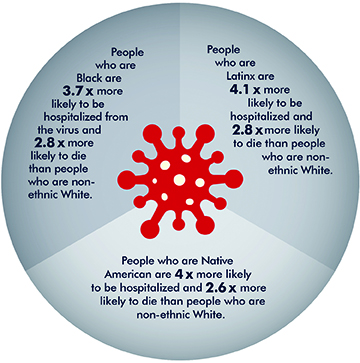
The Colorado Vaccine Equity Task Force is determined to vaccinate citizens in underserved communities.
In essence, the Task Force is mounting what is turning out to be a grassroots reeducation campaign to assuage fears, to combat misinformation and to ultimately get people from underserved communities vaccinated in order to stop the disease. “It has been super successful so far,” says Wasserman, “We’ve done policy and communication work, advocacy, outreach and engagement. It is really about getting into communities as much as possible, starting constructive conversations and allowing trusted community members to speak to their neighbors about the merits of the vaccine. “For example,” she begins, “We have two retired nurses on the Task Force who are very active and well known in their parish in the Montbello neighborhood. They held a pop-up clinic at their church and because it was hosted by them, hundreds of people signed up to be vaccinated and all supplies were gone in two hours.”
A Factually-Informed Outlook
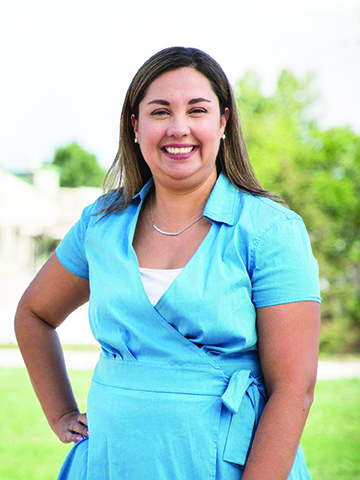
Colorado State Representative Yadira Caraveo is also a Pediatrician with a medically-informed understanding of vaccines.
State Representative Yadira Caraveo, in addition to her role as an elected official, is also a pediatrician and a member of the aforementioned Colorado Vaccine Equity Task Force. Her primary roles are those of a coordinator and an administrator in the effort to achieve distribution equity of the vaccine. Regarding the timeline for getting the prescribed 70+% of the population vaccinated, Caraveo is hesitant to make an exact prediction. “I think the timeline has been changing as the realities on the federal level trickle down to the state level in addition to the lack of planning from the previous administration,” she explains. “Still, I think it is realistic and hopeful that we could get everyone who wants a vaccination taken care of by late summer, early fall.”
Optimism aside, Caraveo’s role in the Task Force has given her an informed perspective about vaccine hesitancy. “I think a lot of the uncertainty about this particular vaccine comes from the perceived speed with which it came out,” she begins. “People are out there saying ‘well, it can’t possibly be safe — it has only been 10 months since the pandemic started.’ But the important thing to remember is that science is ongoing and is built on decades of research and development. The research for these vaccines was built upon the research that was done for the MERS and SARS vaccines as well as mRNA that has been studied since the 1950s. It is a fact that scientists are continually working on things that they anticipate may be needed at some point — which is why this came out so quickly.”
Caraveo continues with a vaccine advocacy home-run hit, “As doctors, we’ve been talking for decades about how people don’t understand the need for vaccines because they haven’t seen a lot of the illnesses we vaccinate against now. Most people alive today have never seen someone with polio or tetanus because of the vaccines. This is the first instance in a century where we have developed a vaccine for something that people can see every single day — people who are getting sick and dying of COVID-19. The effects of the vaccine, or any vaccine for that matter are very minimal compared to what the illness does. The chances of anything happening [negatively] with the vaccine are one in a million as opposed to the chances of something bad happening should you get COVID-19.”
Caraveo ends with one last stark, unarguable, scientific gem of truth, “This is a perfect example of why vaccine hesitancy has grown over the last century and why it shouldn’t have grown. Now we can see, in real time, the effect of a vaccine versus the effect of an illness.”
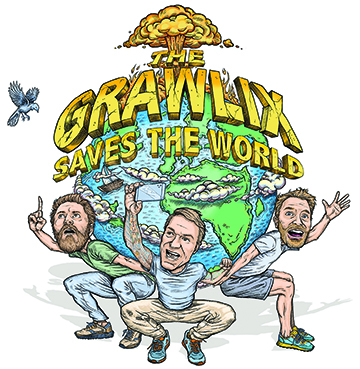
by Luke Schmaltz | Feb 19, 2021 | Glendale City News
 by Luke Schmaltz
by Luke Schmaltz
The broadcasting topography across the Mile High City is as varied and diverse as the populace of the city itself. Listeners interested in local happenings, extreme opinions, artistic outlooks, nerd-tastic observations and business savvy can tune in and sink their teeth into just about any narrative that resonates with their worldview.
If you were to amass the vast amount of topical content originating from the greater Denver area into one giant mountain of sound, slice it in half and observe it like a geological map, you would see the musings of artists, sports fans, lowbrow freaks, highbrow sophisticates, political pundits, and many more swirling about one another like independent swarms of busy bees. Podcasting is alive and thriving in Denver and if you’re not tuning in, you’re missing out.
Brotherly Love
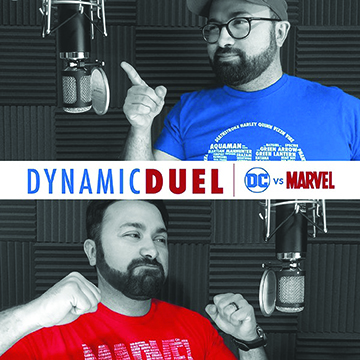
Brothers Joseph and Jonathan Garcia debate the superiority of Marvel and DC Comics, respectively.
Jonathan and Joseph Garcia love comic books. As twin brothers, their natural proclivity to tangle manifested in spirited debates about which brand of heroes and villains was best. Thus, was the genesis of Dynamic Duel — a podcast determined to either settle or perpetuate an ages-old Marvel vs DC debate. “Since we were young children, we’ve had an interest in the colorful, fictional worlds of Marvel and DC,” Joe explains, “and would regularly discuss which was better even as we grew up. We decided to record those conversations in 2016, leading up to the Batman v Superman: Dawn of Justice release, when we figured the Marvel and DC rivalry would further permeate the public’s perception.”
The Garcia brothers orchestrate each episode with precision and well-researched insight. Unlike some podcasts that are sent over the wire warts and all, Marvelous Joe and Johnny DC — their “super” podcaster names — edit for consistent pacing and flow in order to maximize listener experience. Content themes oscillate between comic book movie reviews and character match-ups such as Green Lantern vs Iceman, Plastic Man vs Mr. Fantastic and Batgirl vs Hawkeye. Whether you’re a fellow comic book nerd or a newbie, this podcast is a wealth of insight into the two most popular publishers of modern mythology.
While the past year has been a major bummer for some, this is not the case with the Garcias. Joe explains, “A common gripe from our friends and family over the past year [is] that they’ve been bored and experiencing cabin fever. That’s not been the case with us. In addition to never missing an episode drop date, we spent a lot of time this past year honing our craft and were lucky enough to win three Colorado Podcast Awards in 2020.”
From The Ground Up
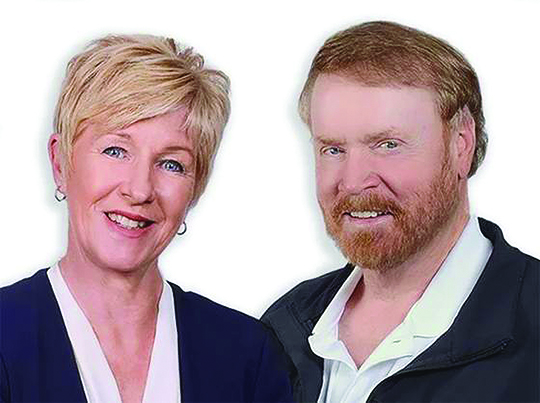
Chuck Bonniwell and Julie Hayden are interested in revealing the truth about important issues.
Chuck Bonniwell and Julie Hayden are perhaps the hardest working team in Denver podcasting, producing three shows every week on Mondays, Wednesdays and Fridays at 3 p.m. MST. Like many of their contemporaries, they began in a basement with very little technical know-how but with one distinctive difference: they had a pre-existing listenership. After their show on KNUS was canceled, they were compelled to switch to the podcast format in order to stay in touch with their hard-won audience.
The show takes definitive stances on hot-button issues, and in a hypersensitive environment, they are feeling the effects — both positive and otherwise. When asked about the show’s stance on state-sponsored censorship, Hayden explains, “I would not describe our show as a ‘stance against the idea of government control.’ Rather, I would say we have a populist, grassroots take on things, whether it be Denver, Colorado, or national issues. And we are definitely being censored by YouTube, Twitter and Facebook. We have lost roughly a third of our Twitter followers since the election. YouTube deleted one of our shows over election content and Facebook regularly “throttles” the number of people who see our posts. We have created new accounts on Gab .com and Rumble.com.”
Undaunted, the duo forges forth in relentless pursuit of the examination, exploration, and dissection of the issues they are passionate about. They roll with the unfolding of current events, reacting in “real time” as much as possible. “We focus on current events, especially Denver and Colorado issues,” Hayden says. “We book guests a few days ahead of time but there is so much going on these days we do not plan more than a week ahead.”
When asked about the show’s format and content curation strategy, Hayden explains, “We want to provide an informative and entertaining show focusing on current events where everyone feels heard and welcome. We have leftist/Democrat guests and callers [and] we have more populist callers and guests who hold a wide variety of opinions that we often disagree with. We describe it as everyone sitting around the ‘kitchen table’ talking about the day’s events. Our hope is not to change anyone’s mind but to get people thinking and talking and hopefully [being] glad that they spent an hour with us.”
The Chuck and Julie Show shoots from the hip — so to speak — as each episode streams live across numerous channels. “Our show is somewhat unique in that we do video and audio. The show is live streamed on YouTube, Facebook, all of the major podcast apps like iTunes, iHeart, Google, etc. We also post the show on Podbean and Rumble… so there is no editing and anytime we have a scramble, (which happens all the time) [and] everyone sees and hears that.” Listeners who love this sort of authenticity can also anticipate high profile guests from time to time such as Fox’s Judge Jeanine Pirro, national columnists and authors like David Horowitz, John O’Connor, Jennifer Kerns, Rep. Ken Buck, and Democratic strategist Ted Trimpa.”
The Business Wizard
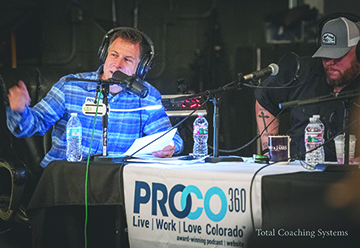
Dave Tabor of the PROCO360 Podcast is a business expert who has found his second calling. Photo credit: Chris Clark
Dave Tabor does his homework. As a former business owner, company executive, holder of an MBA from CU, and senior executive for the Colorado Chamber of Commerce, he approaches each episode of the ProCo360 podcast like a high-level business presentation. He explains, “My approach is this: explore what makes me deeply curious about a leader and her/his company and dig into that. It takes research and preparation, and it takes some deep thought. I don’t quit my prep work until I feel excited for the interview. The most gratifying moment is when a guest pauses and says, ‘hmmm, that’s a great question.’”
After selling his company — Tabor Interactive — to a NASDAQ company, the former CEO was restless, and discovered that he missed the entrepreneurial world. Luckily, his business expertise was in high demand, and he was invited to be an intermittent guest host on a morning talk radio show. This developed into a steady hosting gig at a weekly morning show. Tabor felt his audience was better suited for evenings and he switched to the podcast format.
Thus far, he has delivered invaluable insight into the world of commerce through interviews with more than 100 Colorado business leaders including John Hayes (Ball), Jake Jabs (American Furniture Warehouse), Andre Durand (Ping Identity), Antoinette Gawin (Terumo BCT), Nancy Fitzgerald (iLending Direct), Tory Bruno (United Launch Alliance), Adam Contos (RE/MAX), and Troy Guard (TAG Restaurant Group).
To The Letter
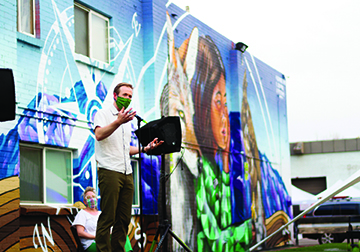
The Narrators co-host Ron Doyle and actor/ teacher Adrian Holguin at The Narrators, August 2020 at EXDO Events Center.
Producer Ron Doyle is no stranger to the show running world, with over 10 years of experience under his belt across numerous formats. His current endeavor, The Narrators, is a hybrid balance of live production and curated podcast content. The live shows are taped every third Wednesday, and the stories that are shared by guests of those events are edited into podcast content. “During normal times,” Doyle explains, “the show happens at Buntport Theater. Right now, we’re doing virtual shows and will likely shift to outdoor shows at EXDO Events Center when the weather warms up.”
The Narrators strives to explore a breadth of themes, brought to the storytelling stage through the expertise of Denverites from all walks of life. After 10 years of shows, they have explored just about every topic imaginable. Doyle elaborates, “We invite comedians, actors, musicians, artists, and other interesting folks from around Denver to share true stories, and occasionally folks reach out to us when they have a story that matches the theme. We don’t screen or edit our storytellers, so we’re just as surprised as the audience by the stories they share.”
Adapting to restrictions Covid-19 placed on The Narrators live shows has been a challenge, but Doyle remains upbeat, “Our podcast actually took a hiatus for part of the year, because we were busy shifting the live show to virtual and outdoor venues (we just relaunched at the beginning of 2021), but we still had folks tell us how much they appreciated our back catalog of 200+ episodes. It’s soothing to hear the live audiences in those recordings, clapping and laughing. After a year of social distancing, it feels nice to hear how the world worked before the pandemic — and hopefully makes folks feel optimistic about the future.”
Making A Ruckus

The MF Podcast examines society’s underbelly through the lenses of musicians and artists.
True to their DIY musical roots, Aaron Howell and MF Ruckus bandmate Tony Lee started the MF Podcast in a spare bedroom on secondhand gear with a healthy sense of humor. “We’ve always enjoyed talking and cracking wise, so it seemed like something we could pull off pretty easily,” Howell explains. The longtime friends navigated the steep technical learning curve and steadily progressed from putting together episodes with whatever gear was at hand to working with a remote producer to moving operations into the Burn TV studios where Howell worked as a voice actor for Nug Nation. As the show grew, it was soon apparent that a local producer was in order and Denver music maven Gordon Leadfoot of the band Granny Tweed came aboard. Soon after, Lee, a Chicago native, was called back home which left Howell to lean on Leadfoot and MF Ruckus bass virtuoso Logan for support.
The podcast content is an expansion on the fascinating, wide-ranging and tragically fleeting conversations that take place in and around the world of live music — usually backstage or somewhere on the venue floor between acts. The format aims to magnify the dynamic of interesting people from all walks of life who meet, explain their unique insights, and laugh about shared experiences. “I’m sort of a hobbyist when it comes to heterodoxy, so I really like talking about the big issues happening in the world.” Howell explains “I like to talk philosophy, politics, life experiences, explore and learn. Mostly, we tell stories, crack jokes and let our guests lead the way. I sincerely believe we’ve never had a bad episode. The conversations are always good, wherever they may roam.”
Viewers who tune in to a live episode will be treated to the raw content as it unfolds between hosts and guests. Leadfoot, who has become an influential host/voice of the show in addition to producing, cleans up the audio, adds music and bumper for the audio feeds. Howell beams about the wide array of guests he has had the pleasure of interviewing over the show’s 121 episodes. Among these are Blaine Cartwright of Nashville Pussy, Ben Hutcherson of Khemmis, Apartheid activist-turned aeronautical engineer Eric Stranger, musician and record label head Reed Wolf, and comic book writer/professor/Ted Talker R. Alan Brooks, to name a few.
Those Who Can

The Grawlix continually prove that just about anything is possible with enough laughter at hand.
The trilateral axis of thinking people’s comedy known as The Grawlix is on a mission to save the world. Comedians Adam Cayton-Holland, Andrew Overdahl, and Ben Roy have been in each other’s orbit for the better part of 16 years. As individuals they have been forging their own standup careers which converge from time to time as The Grawlix — a name borrowed from the term used for typographical symbols used in place of obscenities. The group is best known for their outstanding television show Those Who Can’t which is available for streaming on HBO Max.
“We wanted to start a podcast,” Cayton-Holland begins, “because when our TV show ended after three seasons, we all kind of regrouped and thought, ‘Well we really like working with one another. Let’s do another project together.’” Cayton-Holland continues, “Unlike the pressure cooker of television, a podcast seemed like just a really easy, DIY format where there are no gatekeepers or anything, you just start one and off you go! We liked the freedom of that. We kicked around a few ideas for the format and then Ben (Roy) had the idea of doing a show where we try to improve ourselves and that just was the perfect spark. We reached out to our friend Ron Doyle (of The Narrators) who’s a wizard at this kind of stuff and he agreed to produce the podcast and off we went!”
The show’s format, while set with the clear directive of exploring self-care and personal improvement, allows an underlying comedic current to carry the momentum. Topics such as meditation and yoga are counterbalanced by slapstic spatula-slapping for overuse of the word “like” and self-inflicted, torturous binge-watching assignments of The Fast and the Furious movie series.
This healthy balance of self-care and silliness seemed to almost intuitively anticipate 2020 and the challenges it would bring. “The pandemic hit and the world as we knew it changed and everything was really frightening and anxiety-inducing and here we had this great format that we were already doing where we try to take care of ourselves, to try to counter the poison that we see in the world.” Cayton-Holland says. “The podcast is funny, first and foremost, but we always wanted the podcast to be positive and uplifting as well. So, really, it’s been something that I’ve come to look forward to over the lockdown. I get to check in with my friends every week and laugh a lot, and then put into practice a new way of looking at the world for a week. It’s been really good for my spirit, and our listeners tell us it has for theirs too.”
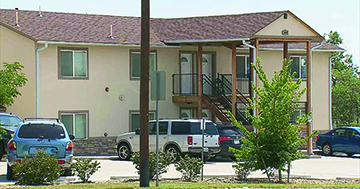
by Ashe in America | Feb 19, 2021 | Travel
by Robert Davis
“It’s wild to think that if Full House was filmed in Denver, then Joey could get evicted,” one Denver resident said as City Council approved a controversial text amendment to its zoning code.

Group Living: The 200-page Group Living Amendment was passed at the nearly 7-hour long February 8, 2021, meeting of the Denver City Council by an 11-2 margin. The amendment expands the number of unrelated adults allowed to live in a single-family home up to five.
Known as the Group Living Amendment, it expands the number of unrelated adults allowed to live in a single-family home up to five, bringing Denver’s group living ordinances in line with cities like Telluride, Aspen, and Colorado Springs.
Senior City Planner Andrew Webb, who sponsored the 200-page amendment, described it as “a move away from current regulations that prohibit or are obstacles to providing care for our most vulnerable residents, and from exclusionary regulations of the past that relegated certain people to industrial parts of the city that often border our poorest communities.”
The amendment passed by an 11-2 margin at the February 8, 2021, City Council meeting. Councilmembers Amanda Sawyer (District 5) and Kevin Flynn (District 2) voted against it. 1,143 written comments were submitted prior to the vote. 619 comments were in support and 524 were in opposition.
Groups such as Neighborhood Coalitions of Denver, All In Denver, and YIMBY Denver supported the amendment. Many single-family homeowners and several registered neighborhood organizations (RNO) vehemently opposed it.
During the nearly eight hour public hearing, several residents voiced opposition to increasing density through congregate living in Denver’s single-family neighborhoods. They said the amendment will only serve to decrease property values, increase crime, and destabilize neighborhoods.
Supporters described the amendment as a first step, but argued some of compromises made by City Council leading up to its passage made the amendment needlessly watered down.
One compromise was continuing the prohibition of community corrections facilities in single-family, multifamily, and row house districts. The amendment also restricts large residential care facilities to parcels of land used for civic, public or institutional purposes. Examples include unused churches, schools, and government buildings.
Other supporters told stories of how living afoul of Denver’s current prohibitions on unrelated adults living together helped them overcome adversity or youthful mistakes. Some had lived in community corrections or residential care facilities and had grown up to become homeowners.
“This issue is bigger than the cars parked on the street. It’s about our neighbors; the people who live in our communities. We need to start supporting our neighbors, even the ones who don’t look like us,” said Kiera Jackson, who lives in Montbello.
Mary Coddington, who works with local housing group Neighborhood Development Collaborative, said cities with similar policies like the Group Living Amendment haven’t seen the rising crime rates or lower property values that opponents suppose.
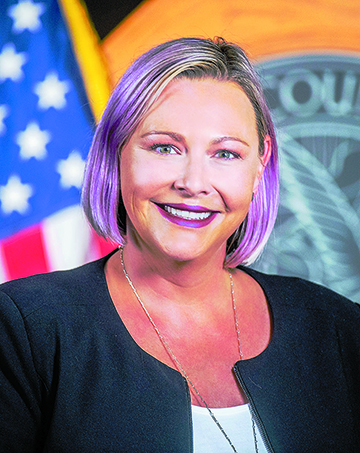
Denver City Councilmembers Amanda Sawyer (District 5) and Kevin Flynn (District 2) voted against the Group Living Amendment at the City Council meeting on February 8, 2021.
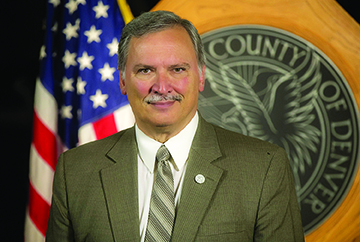 “Denver is really far behind most cities when it comes to common sense group living policies,” she said. “Expansion of areas where community corrections and residential care facilities really need to happen. These facilities are designed to help people get on their feet and reenter communities. But, these efforts are undercut if they’re still segregated away from residential areas.”
“Denver is really far behind most cities when it comes to common sense group living policies,” she said. “Expansion of areas where community corrections and residential care facilities really need to happen. These facilities are designed to help people get on their feet and reenter communities. But, these efforts are undercut if they’re still segregated away from residential areas.”
For business owners like Gail Lindley, who owns Denver Book Binders, the amendment could have large implications on their property taxes. The amendment essentially unlocks potential land uses in several parts of the city, thereby guaranteeing a steeper property tax bill in the near future.
Denver Book Binders sits on a nearly 10,000 sq. ft. lot. In 2009, the company paid nearly $13,000 in property taxes, according to Lindley. By 2019, that bill had ballooned to over $55,000.
“To me, this proposal just sucks.” Lindley told the Glendale Cherry Creek Chronicle. “It was passed under the cover of night and nothing was known about who was making decisions until the Mayor’s office was sued.”
In August 2020, Denver resident Florence Sebern filed a Colorado Open Records Act request with the Mayor’s Office requesting information about the Group Living Advisory Committee, a 40-member committee comprised of developers, neighborhood representatives, city officials, nonprofit and business leaders.
The Mayor’s Office initially denied the request. After a lengthy court battle, a District Judge ruled Sebern was entitled to the records. They revealed only eight members of the committee represented neighborhoods, and that 85 percent of the group members stood to profit from the amendment, Sebern said at the public hearing.
“For the last two or three years, only a handful of individuals were making decisions for others,” she added.
Following the vote, Councilwoman Sawyer released a statement saying she supports updating Denver’s definition of household to reflect the way people are already living in the city. However, she couldn’t see her way to the residential care “side” of the law.
“I agree with the vast majority of the residents who reached out to our office over the past few weeks to advocate against these zoning code changes because these changes are not thoughtful… However, I don’t believe the issues with the residential care ‘side’ of the law were adequately addressed,” she said.
















